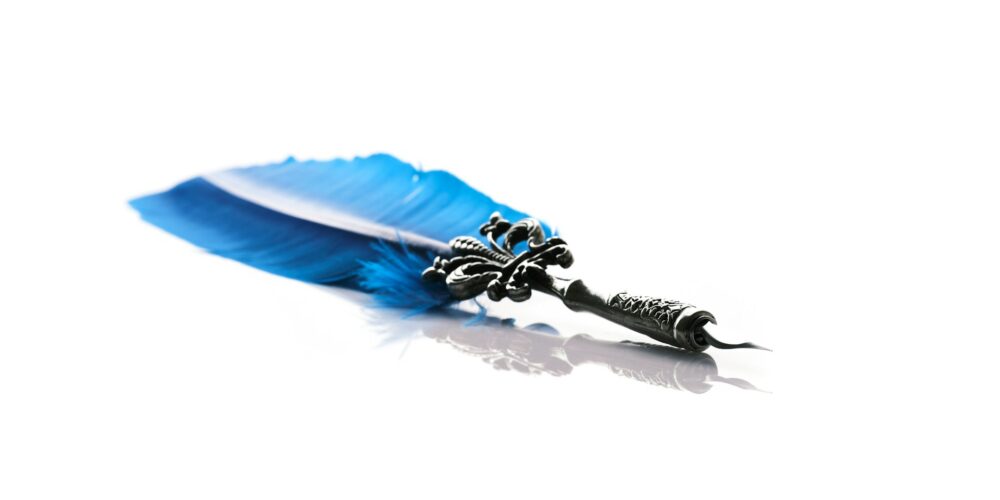Why do we keep using these outmoded expressions?

If you belong to my approximate age-group of humans, you know we were brought up to do things in very specific ways. When we wrote to people, for example, we had to address them as “Dear.” No one stopped to ask: dear? How can a stranger be dear to me? Why would I call them that?
When you didn’t know the name of the person you were writing to, you called them “Dear Sir.” How bizarre is that combination? And if you wanted to address the organization as a whole, it had to be “Dear Sirs.” Over time, “Dear Madam” came onto the scene—but never “Dear Madams.” Maybe it wasn’t deemed possible that an organization could be mostly women. Go figure.
What about the sign-offs? If you had addressed the person by name, “Yours sincerely.” If not, then strictly “Yours faithfully.” Huh? We had to project our sincerity and faithfulness to people we barely knew. And these strictures were observed to the point of absurdity. In 1941, Winston Churchill signed off his declaration of war to Japan’s ambassador in London with: “I have the honour to be, with high consideration, Sir, Your obedient servant.”
Those were the social norms of the day, and they had to be followed. Someone had decided it, and we collectively agreed to it. Servility was in vogue. If you strayed from this script, you risked being labelled unprofessional, or even uncouth, unschooled, or rude.
That was then. But wait, why, even today, do we dust off the archaic relic that is “Dear XYZ” and paste it at the top of every email? And we all no doubt assured people of our sincerity and obedience recently. Are we communicating or auditioning for a role in a Jane Austen movie?
We basically don’t stop to think about the meaning of the words we routinely use. “Dear” is as automatic as a sneeze, and perhaps as inadvertent. Our phrases are a bizarre theatre where we mimic the etiquette of far-flung lands in the 19th century. Without a second thought. It has little to do with meaning or efficiency. We do it because we’ve always done it. It’s a comforting ritual. Even if it’s absurd.
Why am I bringing this up this Sunday? Because these linguistic straitjackets are just one example of the broader societal urge to standardize everything. Language, dress, behaviour—those who control you would love to give you a good uniform. Schools impose dress codes, workplaces enforce decorum, and cultures demand compliance. Why? Because conformity makes life easy. It keeps everyone in line, reduces ambiguity, and eliminates the chaos of too much individuality.
But it also squashes creativity, innovation, and progress.
Imagine a world where every artist painted the same way, every designer followed the same rules, every writer used the same stock phrases (oh wait, that last one sounds familiar). The point is, forcing everyone into the same mould is a recipe for tuneless, predictable monotony. Worse, it breeds mediocrity. If no one can step out of line, no one can stand out.
Do we feel that we need progressive change? Then we must understand that innovation thrives on deviation. Great ideas are born when people break the rules, not when they follow them blindly. Shakespeare reshaped grammar. Steve Jobs wore a turtleneck instead of a suit. Greta Thunberg defied the norms of polite activism. Change-makers don’t ask, “How can I blend in?” They ask, “Why the hell is everyone doing it this weird and ludicrous way?”
Language is no different. We need words and phrases that fit the times we live in, not the century our grandparents came from. Just as we don’t use quill pens or travel by horse-drawn carriage anymore, maybe it’s time to ditch the linguistic artefacts. A “Dear Sir” doesn’t make your email any more compelling. A “Yours sincerely” doesn’t make you more trustworthy. What matters is the clarity and authenticity of your message—not the antique wrapping paper you’ve put it in.
This goes beyond language. Why do men have to choke themselves with ties and bulky suits in hot countries? Why do women have to totter around in uncomfortable shoes that wreck their spines? It’s the same reason: conformity for conformity’s sake. We want everyone to be predictable, similar, uniform, homogenous. Why, though? Ideas came out when the tie came off. Modern tech was not revolutionized by suit-clad conformists; it was the hoodie-wearing weirdos with crazy hair colours who did that.
Let’s start somewhere. What if we all just chose the greetings that reflects our feelings or personalities? Would “Hi,” “Hello,” “Hey,” “Greetings,” “Sasa” or “What’s up” make civilisation as we know it crumble? If our written communications became more real and less robotic, would life get better or worse? Are we averse to a society that embraces individuality and brims with ideas and new energy?
Have I gone too far this Sunday, and do you want to carry on being dear and sincere? Hey, knock yourself out. This is a provocation, not advice. You do you. Let me sign off, folks, and say ciao for this week. But remember I’m not yours, and I’m certainly not obedient. Bye.
(Sunday Nation, 8 December 2024)

Buy Sunny Bindra's new book
The X in CX
here »
Popular Posts
- My books of the yearDecember 14, 2025
- Here’s why you should become foolishNovember 30, 2025
- Confessions of an explaining personDecember 7, 2025
- How to listen, really listenNovember 16, 2025
- Is AI hiring your company into oblivion?November 23, 2025















